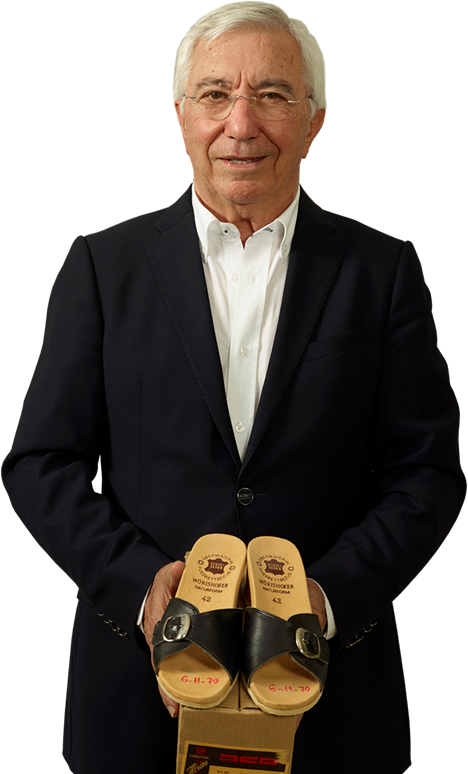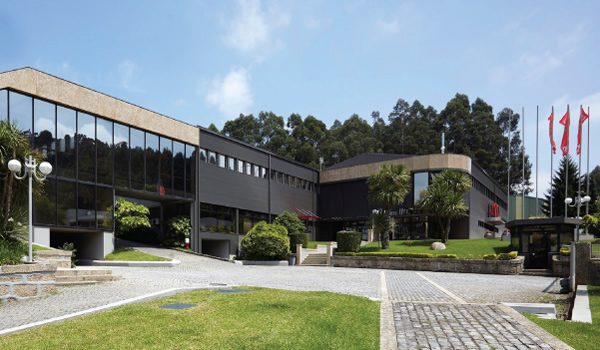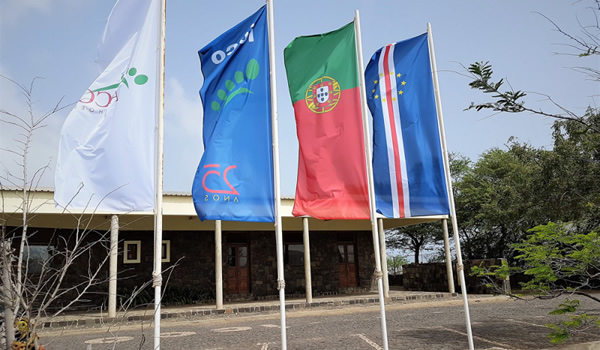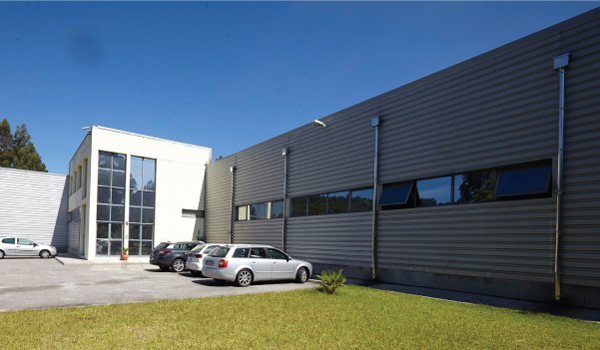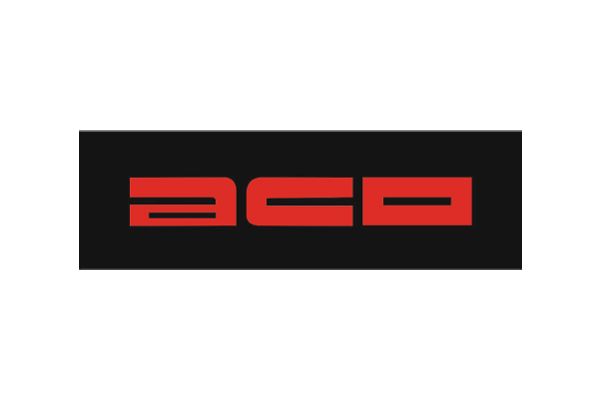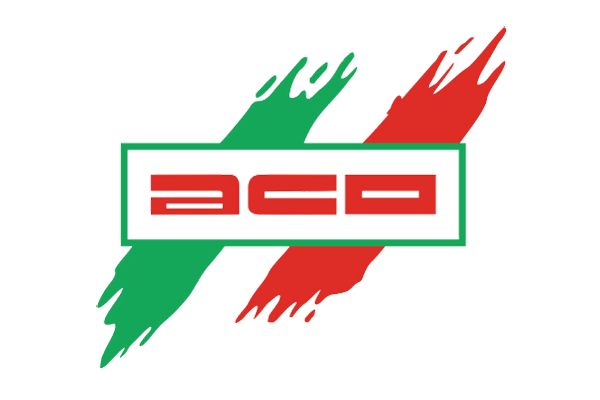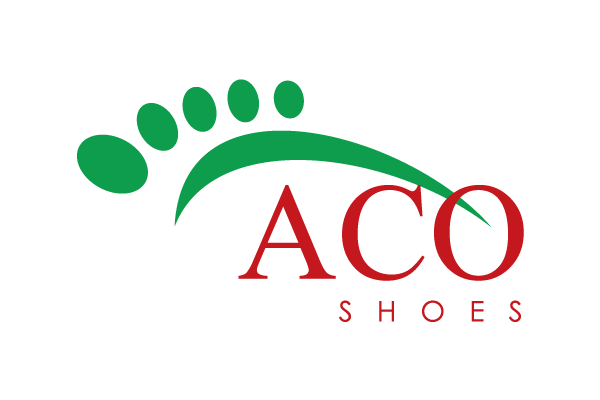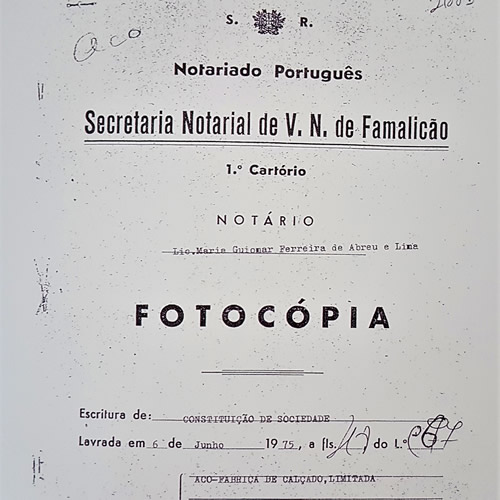
On the 6th of June 1975, ACO - Fábrica de Calçado Lda was officially constituted, by a deed drawn up in the First Notary Office in Vila Nova de Famalicão (Portugal). With a total of 11 people, ACO began as a small footwear factory working in the town of Mogege, in a small leased space.

The ACO Footwear Factory leaves the small warehouse it first started and begins to operate in its own modern facilities, built on nearby land, in Condado, Mogege, where it is currently, and where it is prepared to answer to all the production stages of footwear. On the 6th of November, 1979 the first pair of women's comfort shoes were produced in the new facilities.
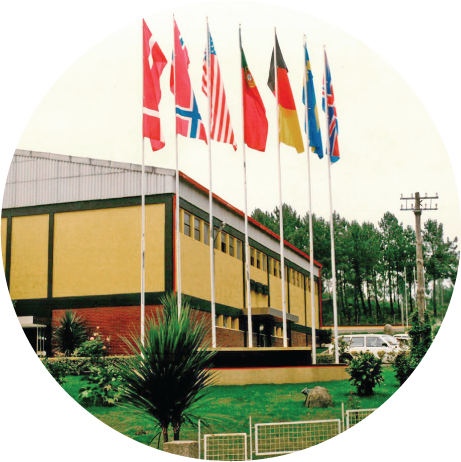
On the 27th of July 1985, the Portuguese Minister of Employment and Social Security, Amândio de Azevedo, inaugurated the new ACO premises in Mogege, Vila Nova de Famalicão. The plant works located in Condado developed over several phases. They began in 1978, with the construction of the first pavilion, and would only totally finish in 1985, with the construction of a new industrial block and a multipurpose space for the workers.
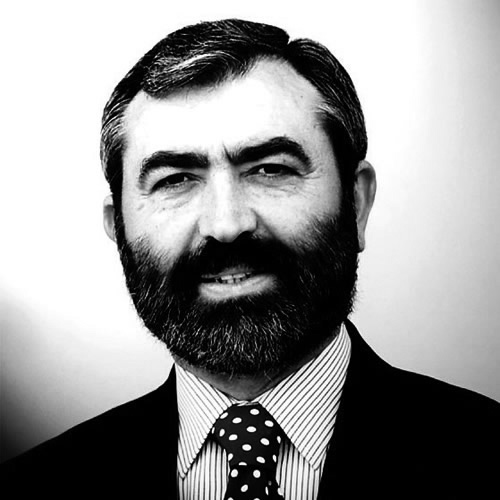
"Those responsible for the Group ACO are considered to be serious people, who practice justice and what they want for themselves make it extend to others. This can not happen if, on the employees' side, there is no collaboration, work and effort. ACO is an exemplary case of this." Remarks made by Agostinho Fernandes, the President of the Municipality of Vila Nova de Famalicão, at the commemoration of ACO´s 10th anniversary on the 27th of July, 1985.
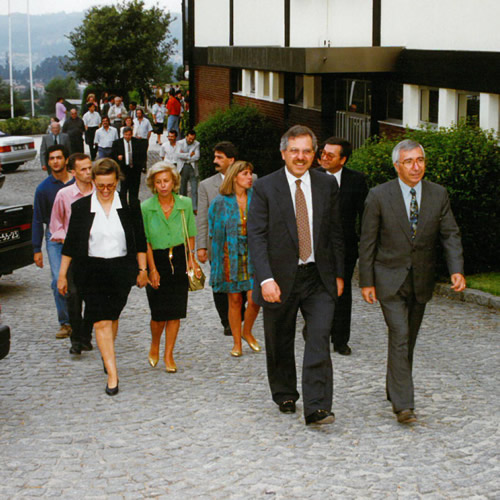
On the 9th of July 1993, the Portuguese Government's Minister of Employment and Social Security, José Silva Peneda, inaugurated ACO's Children's Nursery, including day-care centers, for children from 3 to 6 years of age. (ATL - Study Center) for elementary school children (the first four years of compulsory schooling) who can play and study there.
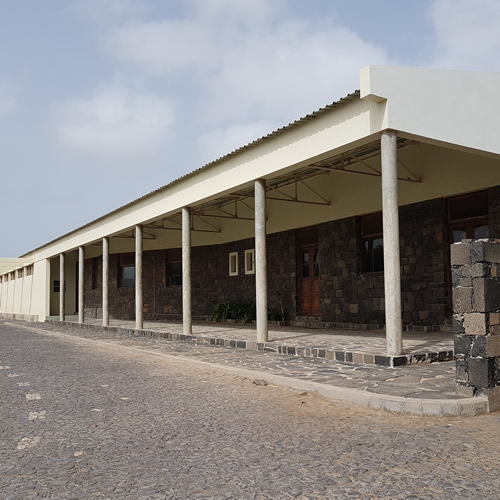
On the 15th of September 1993, the Group began to take shape with the start of ICCO - Components and Orthopedic Footwear, Lda, installed in São Vicente, Cape Verde. The workers of São Vicente, most of them female, received professional training at the main factory in Portugal.
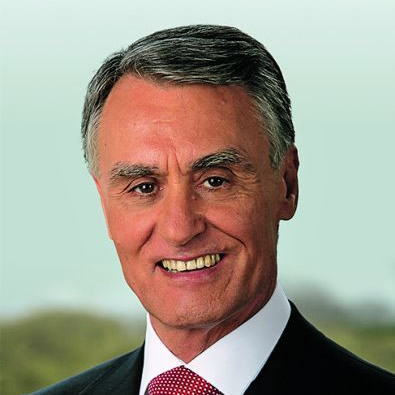
On the 8th of November 1994, the Prime Ministers of Cape Verde and Portugal, Carlos Veiga and Aníbal Cavaco Silva, paid an official visit to ICCO - Components and Orthopedic Footwear Industry.
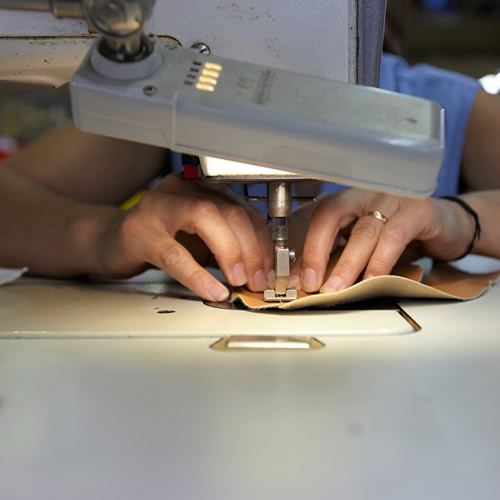
ECCO - Indústria e Comércio de Calçado e Componentes Ortopédicos, Lda., begins its activity in the municipality of Ponte de Lima, in the North of Portugal. In the late 1990s, the GROUP invests abroad due to the lack of manpower available in the regions of Vila Nova de Famalicão and Vale do Ave.
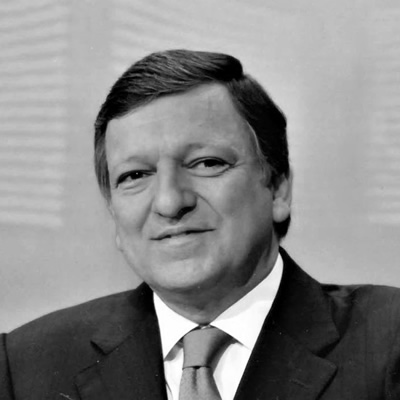
On the 18th of July 2003, the Prime Ministers of Cape Verde and Portugal, José Maria Neves and José Manuel Durão Barroso, paid an official visit to ICCO - Components and Orthopedic Footwear Industry.
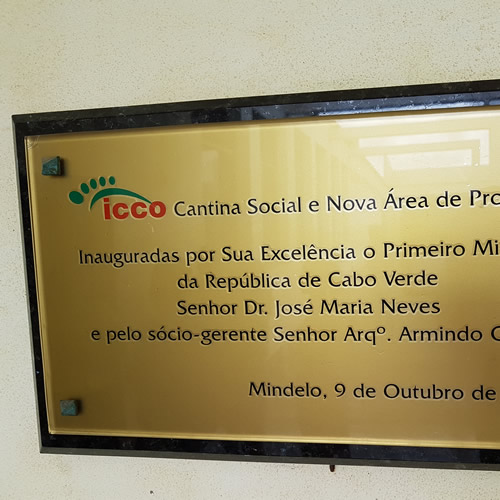
On the 9th October, 2007, the Prime Minister from Cape Verde, José Maria Neves, inaugurated the Canteen and the new production area at ICCO - Components and Orthopedic Footwear Industry.
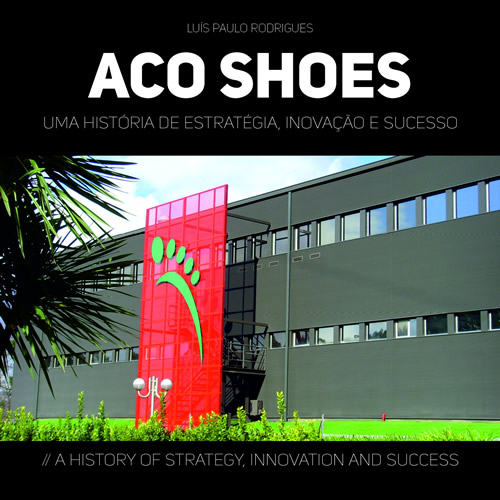
In September, the book "ACO SHOES - Strategy, Innovation and Success - The History of One of the Largest Portuguese Footwear Factories (1975 2015), by Luís Paulo Rodrigues, the communication consultant, is published.
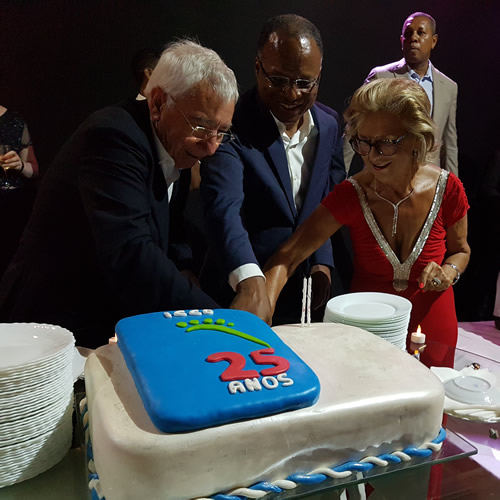
The Government of Cape Verde was represented at the highest level in the 25th anniversary of ICCO - Components and Orthopedic Footwear Industry, on the 15th of September, 2018 in Mindelo. ICCO's 25th birthday, with cake and champagne for everyone, was a joyful event in a fraternal communion between the company's managers, political authorities and the 250 employees. For the Prime Minister of Cape Verde, Ulisses Correia e Silva, more than celebrating 25 years of ICCO's existence, it is celebrating "the entrepreneurial capacity, the commitment with Cape Verde and with São Vicente", of an entrepreneur, Armindo Costa , who "believed and invested in Cape Verde." Therefore, he said that his Government remains "very interested" in jointly developing measures that "prove necessary for ICCO to continue to grow, export, invest and create jobs, employment and income" for its employees.
